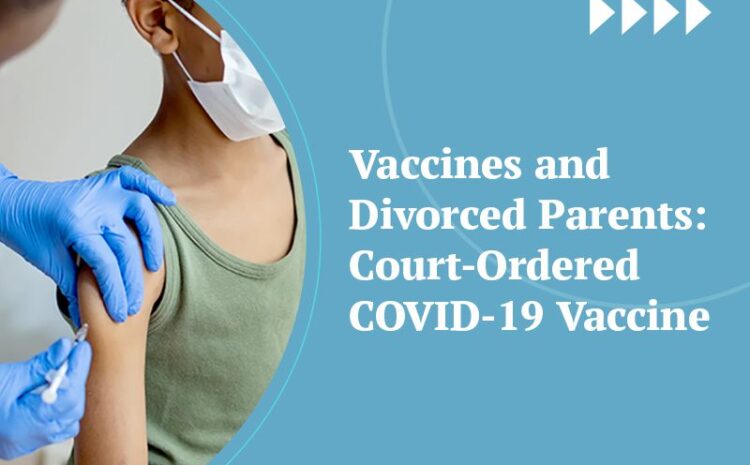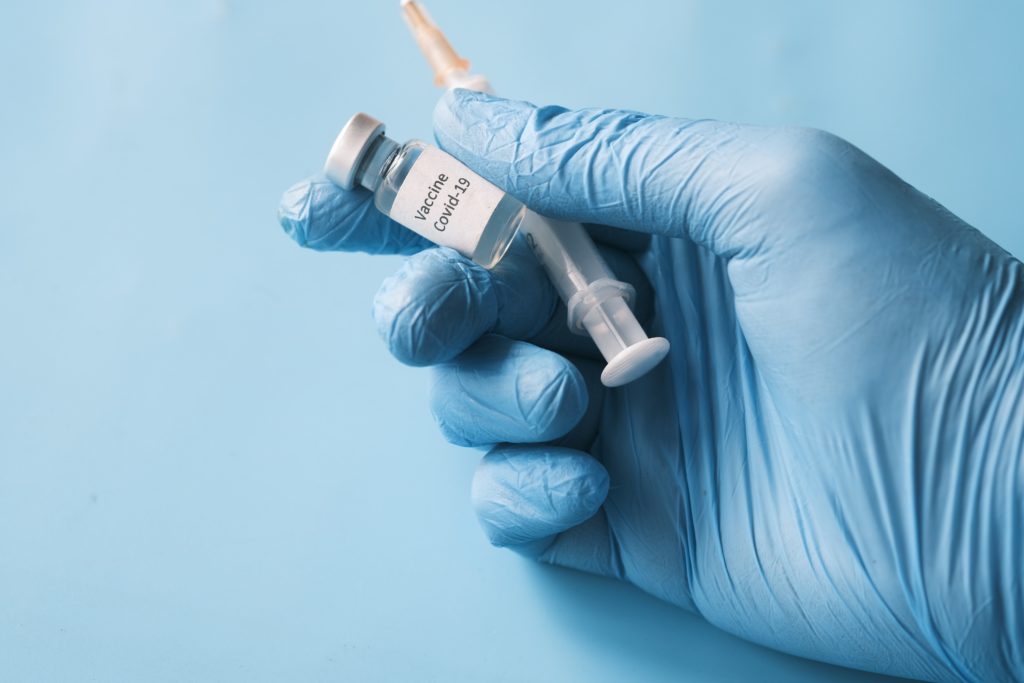
Since the dawn of the COVID-19 pandemic, vast adjustments have been made in how we work, shop, and interact with others. Divisive issues have popped up, creating tense conversations between friends and family members who may not see eye-to-eye on topics like sanitary measures, lockdowns, and vaccines. Few households have had to face tough conversations like this before, and they can be tricky to navigate.
One recurring situation that I’ve seen as a divorce attorney is the case of divorced parents who disagree about whether their child should receive the COVID-19 vaccine. Agreeing on anything as a divorced couple can be challenging; this particular issue can be explosive. And it’s bound to happen more frequently; COVID-19 vaccine hesitancy varies from 2% to a whopping 27% in some states across America.

Here is a relevant question from a divorced parent:
The question: “I’m a nurse and I’ve been on the front lines of the pandemic seeing firsthand what this virus has done to families in our community. I’m also a divorced mother of a 13-year-old son. As I’m sure you know, this week the Pfizer vaccine was approved for 12-15-year-olds. I immediately reached out to my ex-husband about getting my son a vaccine appointment. To my surprise, he adamantly disagrees that my son should be vaccinated. He claims that the vaccine is too new and he doesn’t trust its safety for children. He says there is no real risk that my son will become ill if he gets Covid, so why take the risk? I’m so annoyed by this. I know that teenagers can become ill with this virus- and the point is that you just never know. I want him to be vaccinated so that he can have the protection, but also we all need to do our part to get to herd immunity. What are my rights here? Can a judge make this decision for us?” Source
So what are the legal ramifications of making this decision? How can divorced parents navigate this question based on the legal framework in place?
Here are some answers to those questions.
Joint Custody
Parents with joint legal custody of their children must both agree on making any decision that involves the child, whether it concerns education, medical care, religion, and so forth. Legal custody is different from physical custody; it concerns decision-making only. In the case of vaccines, that falls under the umbrella of medical care decisions that must be made together. If parents can’t agree, there is only one option: to go to court and let the judge make the decision for them. In the above-mentioned example, the mother would need to file a motion asking a judge to order the child be vaccinated. The decision is then in the judge’s hands and the parents will both need to abide by the ruling.
Precedent
In the case of vaccination, there isn’t a lot of current legislation around COVID-19 vaccinations specifically. It’s a relatively new situation that the system is encountering. However, in my experience as a divorce lawyer, I have seen rulings on the subject of mainstream childhood immunizations between divorced parents who disagree about their child receiving them. In previous non-COVID cases, judges have tended towards what federal recommendations say, but this is up to the judge on a case-by-case basis. The tendency is to lean also toward respecting the science and pediatrician’s recommendations.
The Child’s Opinion
Does the child have a voice in the matter? Will the judge request to hear what the minor has to say?
This depends on the situation, the judge, and most importantly, the age of the child. A preteen may not have the knowledge, maturity, and experience to voice an educated opinion on the matter. However, an older teenager may be more vocal about his or her view based on mature, well-reasoned arguments. These might be taken into account when divorced parents disagree on a matter concerning their child.
The Big Picture
Another angle to consider in this situation is that COVID-19 vaccination may become mandatory for children in order to attend public school. A vaccine mandate would take the decision out of the vaccine-hesitant father’s hands and lead to a more peaceful resolution to the disagreement, without involving the courts. Alternatively, the parents could choose to strike a compromise such as vaccinating at a later date (say, in 6 months) in order to address the vaccine-hesitancy issue while still satisfying the pro-vaccination parent’s desire to protect the child from potentially severe COVID-19 complications.

A Word of Warning
Whatever the compromise maybe, it’s not recommended that the pro-vaccination parent go ahead and get the child immunized without the other parent’s consent. This violates the joint legal custody agreement and more importantly, it violates the trust between former spouses. This may open the door to future retaliatory violations and a breakdown of the existing co-parenting structure.
Raising children as a divorced parent is no easy feat. Difficult decisions can arise in which both parents can’t come to an agreement. When that happens, there are options; some are more delicate while others involve handing over the decision to a judge.
Anderson Keuscher PLLC is a renowned law firm in Reno focused on divorce law, property division, and other family practice areas. We understand that going through a divorce or a family dispute can be complicated and overwhelming. Our competent lawyers handle every case in a considerate and thoughtful manner. We help our clients navigate legal obstacles and go above and beyond to protect their legal rights and financial interests.
If you’re going through a family dispute and looking for a reliable family attorney to look after your best interests, get in touch with Anderson Keuscher PLLC.
